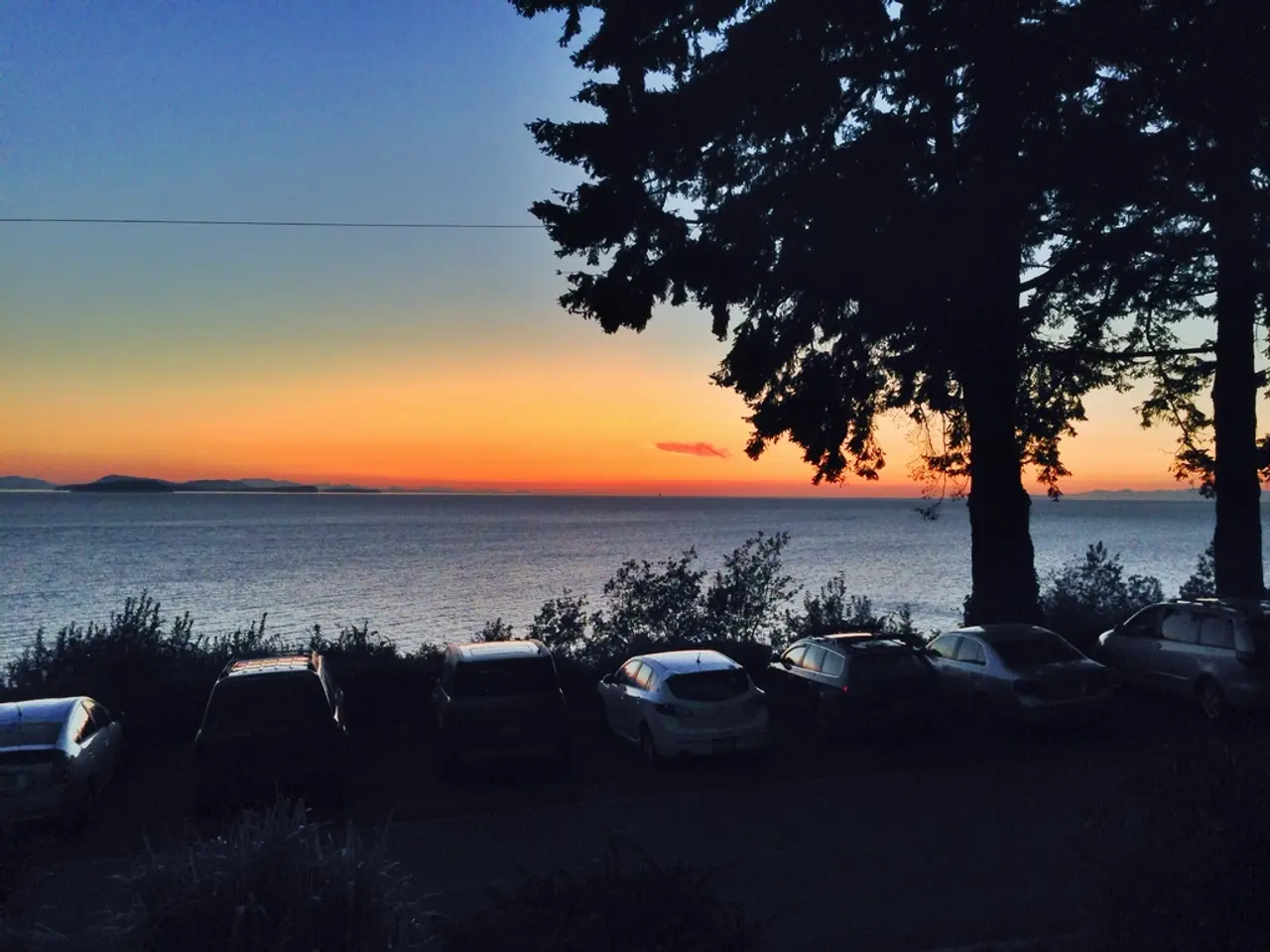Fostering Eco-Friendly Adventures: Strategies for Responsible Vacationing
In the realm of stress research, a new field known as recovery research has emerged, focusing on the effects of removing stressors on overall well-being. This area of study is set to gain more attention, with the German Institute for Tourism Research planning further research this year.
According to Professor Carmen Binnewies, a work psychology expert at the University of Munster, a break from daily life is not just about avoiding illness, but also promoting motivation, enjoyment, and a positive outlook on life. Binnewies emphasises the importance of consciously and consistently distancing oneself from stressors during vacation, such as turning off work emails and parking the to-do list.
To design vacations for maximum relaxation and long-lasting positive effects on well-being, individuals should consider a combination of careful planning, intentional disconnection, and engaging in restorative activities.
**1. Set clear goals and a realistic budget:** Begin by defining what relaxation means for you and establish a realistic budget to avoid financial stress. Break down costs for transportation, accommodation, food, and activities to keep spending in check. Sticking to a budget eliminates a key source of worry that can undermine relaxation.
**2. Choose the right destination tailored to your relaxation needs:** Opt for low-cost, nature-based destinations like camping in state or national parks or exploring local gems. Nature escapes promote relaxation and reduce mental fatigue through immersion in greenery, fresh air, and calm settings. Choosing less crowded, less commercialized spots avoids overstimulation and overspending, enhancing the restorative value of the vacation.
**3. Disconnect and prepare for true rest:** Take intentional steps to unplug from work and digital distractions. For business owners or busy professionals, prepare your work in advance so you can fully step away without guilt or interruptions. Avoid scheduling stressful tasks immediately before or after your vacation to allow smooth re-entry and sustained relaxation benefits.
**4. Incorporate restful, mindful, and enjoyable activities:** Engage in activities that promote mindfulness and reduce stress, such as gentle hiking, swimming, kayaking, or simply appreciating natural scenery. Group or solo creative activities like art, journaling, or puzzles can also enhance well-being and mental relaxation.
**5. Prioritize quality sleep and stress reduction:** Vacations improve sleep quality and mental health by removing daily pressures and providing opportunities for rejuvenation. Avoid alarms and rigid schedules; instead, allow your body to rest naturally. Scientific studies confirm regular vacations reduce stress, lower heart disease risk, and improve sleep and mental health.
**6. Foster meaningful connections:** Vacations are an ideal time to deepen relationships, particularly for couples. Shared experiences and the absence of everyday distractions help strengthen bonds and enhance emotional well-being.
By following these guidelines, individuals can design vacations that maximize relaxation and yield long-lasting positive effects on their overall well-being. Charlotte Bellmann, a project leader at the German Institute for Tourism Research, explains that the effects of vacation have three levels: reducing negative stress reactions, strengthening subjective well-being, and contributing to health strengthening.
Binnewies notes that the effectiveness of a vacation in terms of relaxation can vary from person to person, depending on individual stress factors in daily life and occupational load. The positive effects of a holiday last for a maximum of three weeks, according to Binnewies, with no increased long-term effect even with longer holidays. Good vacation planning is crucial for avoiding unnecessary stress, including having a relaxed arrival and departure.
Remembering holiday experiences through photos, videos, or learning a new language can also help maintain well-being, as can regular nature experiences or small leisure projects between vacations. Challenging activities during vacation can boost eudaimonic well-being, encouraging personal growth and stepping out of comfort zones.
In essence, a well-planned vacation can serve as a powerful tool for promoting relaxation, boosting well-being, and enhancing overall quality of life.
A well-planned vacation can help you step out of your daily stressors and immerse yourself in a peaceful home-and-garden environment, allowing you to enjoy theptive benefits of nature and experience tranquility. For body, mind, and lifestyle improvement, exploring destinations that offer a blend of relaxation, outdoor activities, and cultural exploration can prove highly beneficial.





